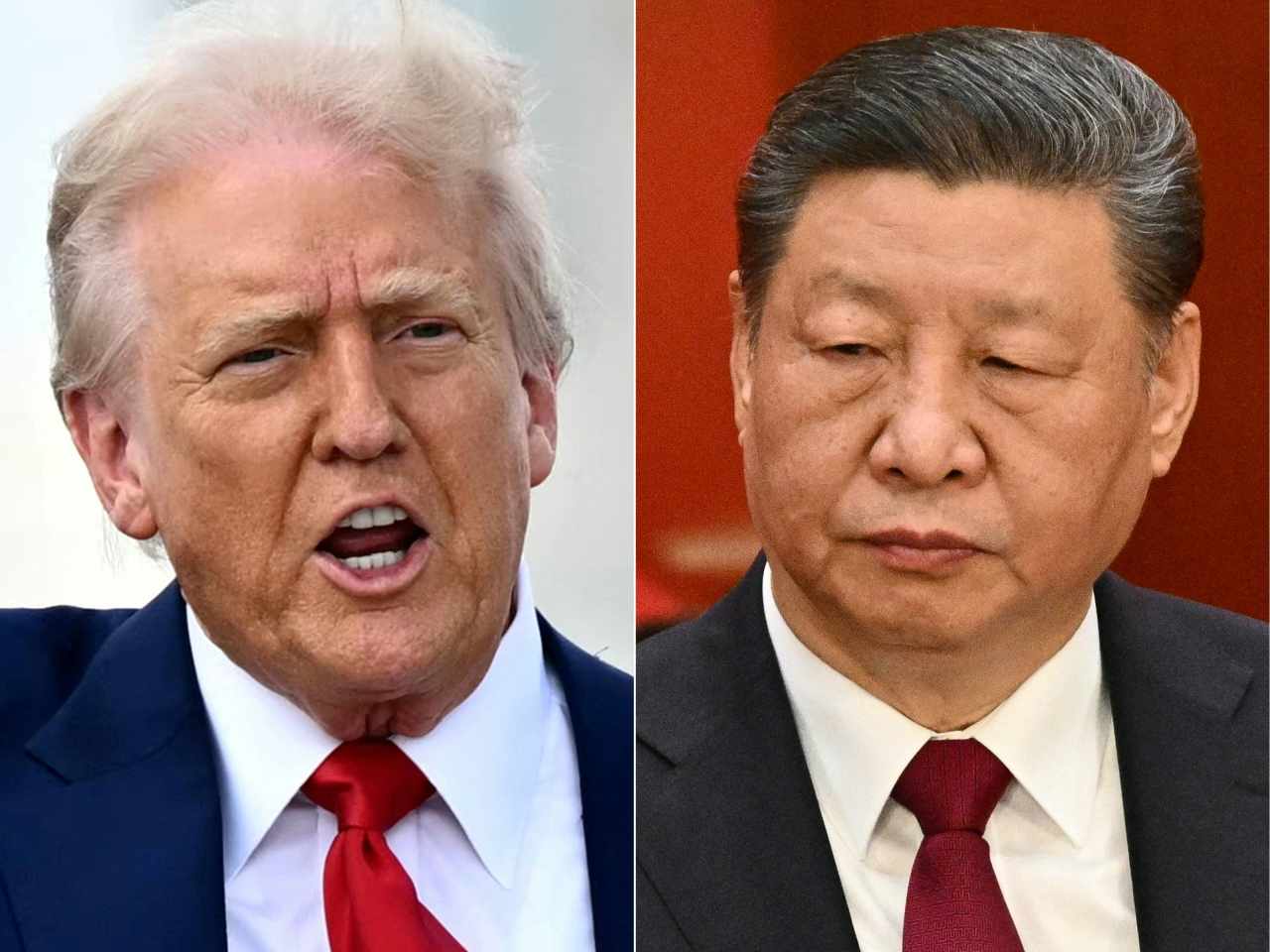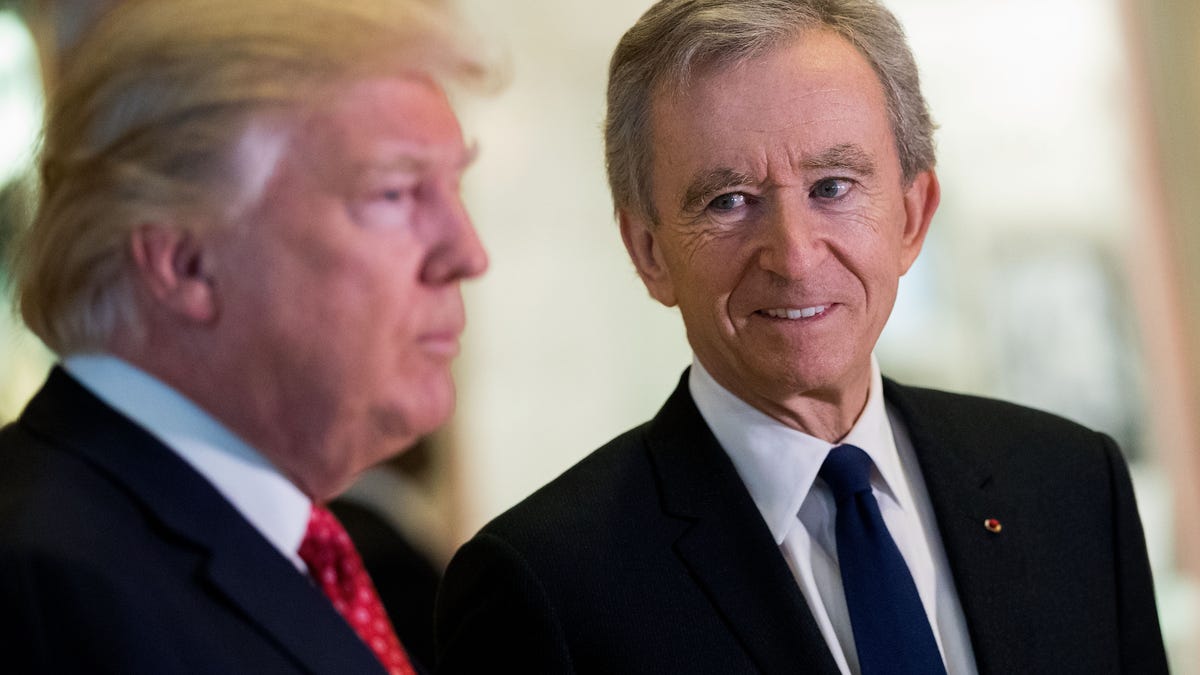TSMC isn’t worried about Trump’s trade uncertainty as it reports 60% growth in quarterly profit
The chipmaker is keeping its annual outlook for sales and said it has not seen any change in customers’ behavior so far.

Taiwan Semiconductor Manufacturing Co., the world’s leading maker of advanced chips, is keeping its 2025 revenue outlook, even as the global tech sector grapples with ever-changing trade policy from the Trump administration.
Net profit jumped 60.3% year on year to reach 361.56 billion New Taiwan dollars ($11.13 billion). Revenue grew 41.6% year on year to 839.25 billion New Taiwan dollars ($25.83 billion).
TSMC will keep its annual outlook for sales and capital spending, despite growing uncertainty around Trump’s tariffs.
Trump slapped a 36% “reciprocal tariff” on Taiwan on April 2, only to pause implementation of those tariffs by 90 days a week later. Taiwan’s U.S.-bound exports now face a 10% tariff. Semiconductors are exempt from those levies, yet Trump has suggested that he might impose separate national-security-related tariffs on those products later.
Still, TSMC expects the AI boom to maintain its momentum. “We continue to observe robust AI-related demand from our customers throughout 2025. We reaffirm our revenue from AI accelerators to double in 2025,” said TSMC CEO C.C. Wei on the earnings call.
TSMC’s ADRs were up around 3.5% in early premarket trading. The chipmaker’s U.S.-traded shares are down almost 25% for the year thus far.
Wei said the chipmaker “has not seen any change in our customers’ behavior so far,” though added that things will become clearer in the next few months.
The CEO also dismissed reports that TSMC was exploring a joint venture regarding the operation of Intel factories in the U.S. “TSMC is not engaged in any discussion with other companies regarding any joint venture, technology licensing, or technology,” he said.
Intel shares were down around 2% in early premarket trading.
Nvidia, TSMC, and the chip war
TSMC reported its earnings a day after the U.S. expanded its chip export controls on China, barring Nvidia from selling its China-focused H20 AI chip. The U.S. chipmaker will take a $5.5 billion charge for its first quarter.
In its earnings release, TSMC revealed that China accounted for just 7% of its revenue in the most recent quarter.
Trump’s trade policies are creating uncertainty as businesses face the threat of tariffs. TSMC’s customers include U.S. firms like Apple and Nvidia. Much of the company’s supply chain is based in Taiwan, though the chipmaker is building new foundries elsewhere, including new investment in the U.S worth $165 billion.
Speaking ahead of TSMC’s earnings call, Mario Morales, group vice president of enabling technologies and semiconductors at IDC, said Trump’s tariff uncertainty was making him more negative in his sentiments about the sector. He added that he was unsure how chipmakers, vendors, and other manufacturers will deal with the extra cost, and how much of that will be passed down to consumers.
“Ultimately, it means that demand will slow down and the volumes will slow down,” he said.
This story was originally featured on Fortune.com














![31 Top Social Media Platforms in 2025 [+ Marketing Tips]](https://static.semrush.com/blog/uploads/media/0b/40/0b40fe7015c46ea017490203e239364a/most-popular-social-media-platforms.svg)

































































































































![[Webinar] AI Is Already Inside Your SaaS Stack — Learn How to Prevent the Next Silent Breach](https://blogger.googleusercontent.com/img/b/R29vZ2xl/AVvXsEiOWn65wd33dg2uO99NrtKbpYLfcepwOLidQDMls0HXKlA91k6HURluRA4WXgJRAZldEe1VReMQZyyYt1PgnoAn5JPpILsWlXIzmrBSs_TBoyPwO7hZrWouBg2-O3mdeoeSGY-l9_bsZB7vbpKjTSvG93zNytjxgTaMPqo9iq9Z5pGa05CJOs9uXpwHFT4/s1600/ai-cyber.jpg?#)








































![How to Find Low-Competition Keywords with Semrush [Super Easy]](https://static.semrush.com/blog/uploads/media/73/62/7362f16fb9e460b6d58ccc09b4a048b6/how-to-find-low-competition-keywords-sm.png)



